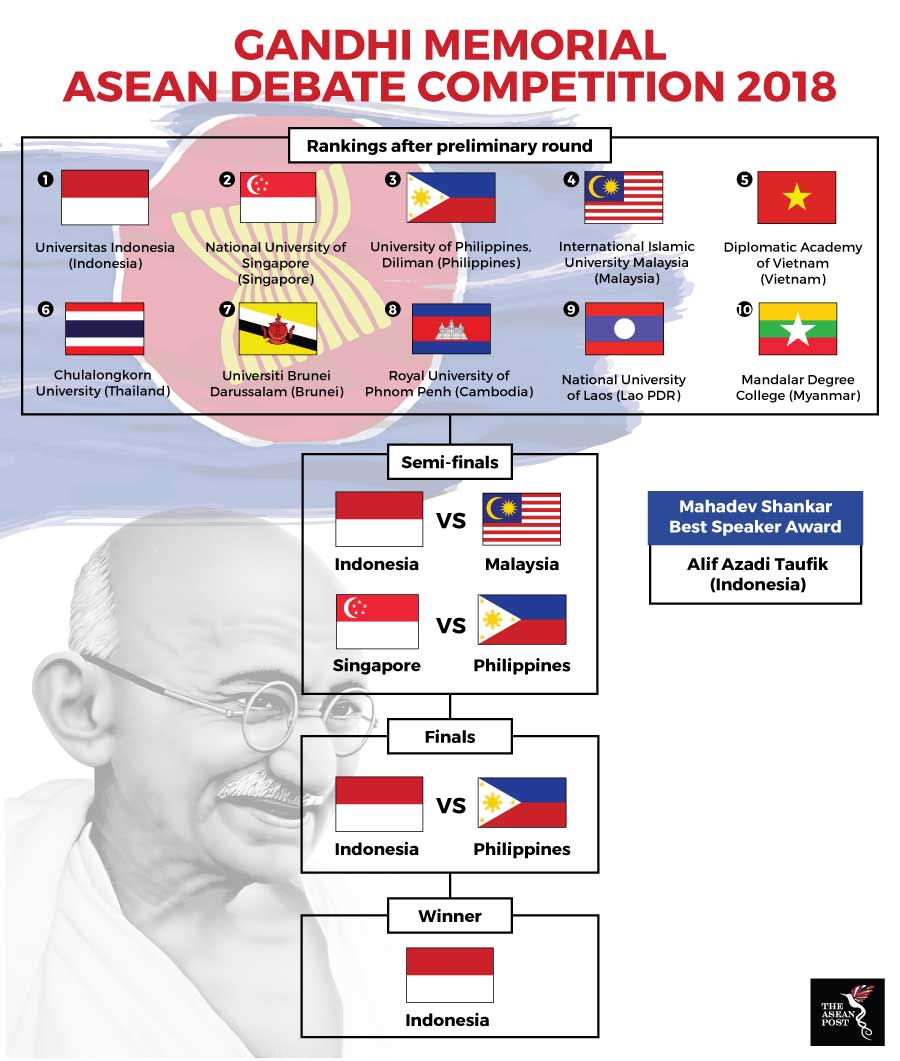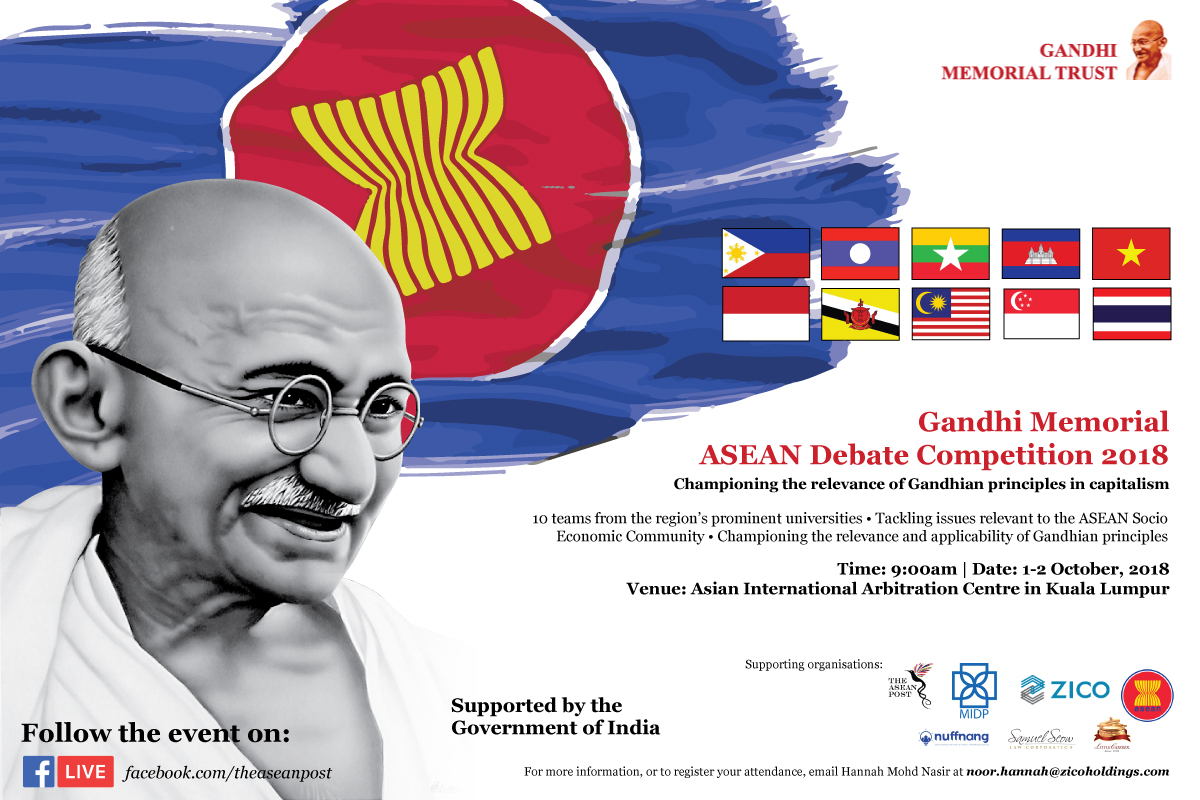Indonesia, represented by Universitas Indonesia (UI) have emerged as champions of the Gandhi Memorial ASEAN Debate Competition 2018, organised by Kuala Lumpur based Gandhi Memorial Trust (GMT).
Following GMT’s successful run of debate competitions organised for Malaysian institutes of higher education for the past two years, the competition this year featured teams from prominent universities in member states of the Association of Southeast Asian Nations (ASEAN) consisting of debaters who are majoring in law, economics and finance.
What sets these debates apart from other competitions is the incorporation of Gandhian principles into the core of the debate topics. Participants debated on a variety of issues pertaining to Gandhian principles of Asteya (Non-stealing), Sparshbhavna (Untouchability), Sarvatra Bhayavarjana (Fearlessness) and Aparigraha (Non-possession).
Indonesia defeated the Philippines, who were represented by the University of Philippines, Diliman in the grand finals held at the Asian International Arbitration Centre in Kuala Lumpur. The finalists debated on the motion of whether ASEAN member states should replace their national identities with a single ASEAN identity. The motion was set in line with the Gandhian principle of Sparshbhavna (Untouchability).
The debates were structured to follow the Asian format of two teams in a parliamentary style debate. Each team featured three members and in the interest of gender equality, every team consisted of at least one member of the opposite gender. Each debater was afforded seven minutes to take the floor with reply speeches lasting up to four minutes.

Mahadev Shankar Best Speaker Award
UI’s Alif Azadi Taufik was crowned best speaker of the competition and received the prestigious Mahadev Shankar Best Speaker Award.
“It is a humbling feeling to be crowned as champion and best speaker. Overall, it was an excellent competition discussing challenging and important issues for ASEAN's future,” he told The ASEAN Post.
“The opponents I faced were all equally great and the results at times were unexpected. I'm happy that I could represent Indonesia for this prestigious event,” he added.
The award is named after Mahadev Shankar, Chairman of GMT who is a retired lawyer and judge in Malaysia. In a speech at the end of the grand finals, Shankar elucidated the driving force behind the debate competition.
“The advancement of the twin pillars of the philosophy of Gandhi. The relentless pursuit of truth (Satyagraha) and the observance of non-violence in order to attain peace (Ahimsa) – that was the mission,” he said.
En route to the finals, Indonesia defeated Malaysia in the semi-finals on the topic of whether the state should be the sole arbiter in the formation of national curriculum for schools.
The winner of the grand final was announced at the Gala Dinner held at the Royal Lake Club in Kuala Lumpur last night.
Organising chairman, Kishore Ramdas expressed his hope that the event had served as an impetus for the rest of ASEAN's private sector in doing its part to support regional community building.
"This competition has proven that there are times when the best kind of support is non-monetary," he said. "What we need for real change is not deeper pockets, but a change in attitude towards working and growing together as a regional community, by pooling all our diverse strengths."
The competition was coordinated by the Malaysian Institute for Debate and Public Speaking (MIDP) and supported by ZICO Law, the Government of India, ASEAN Secretariat, Nuffnang and The ASEAN Post.
